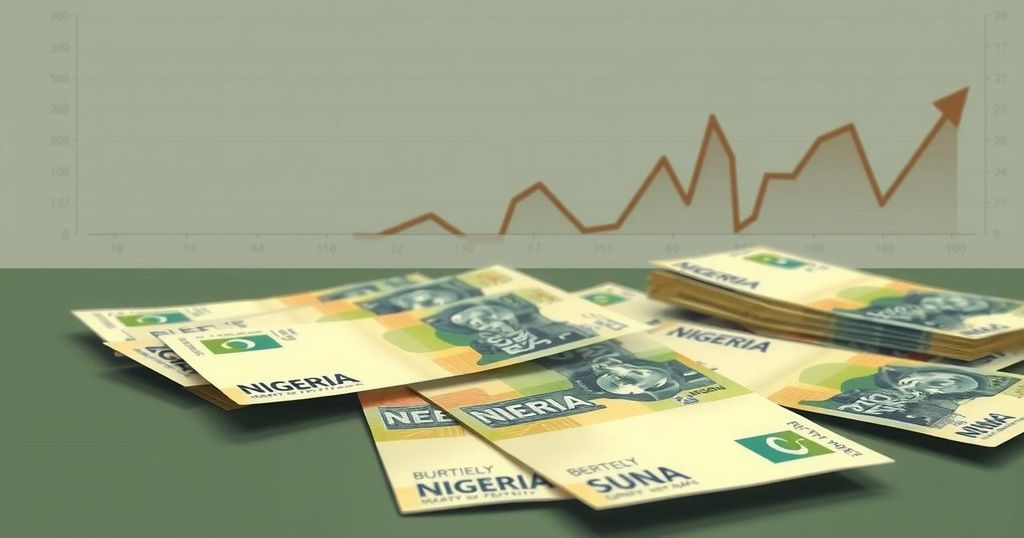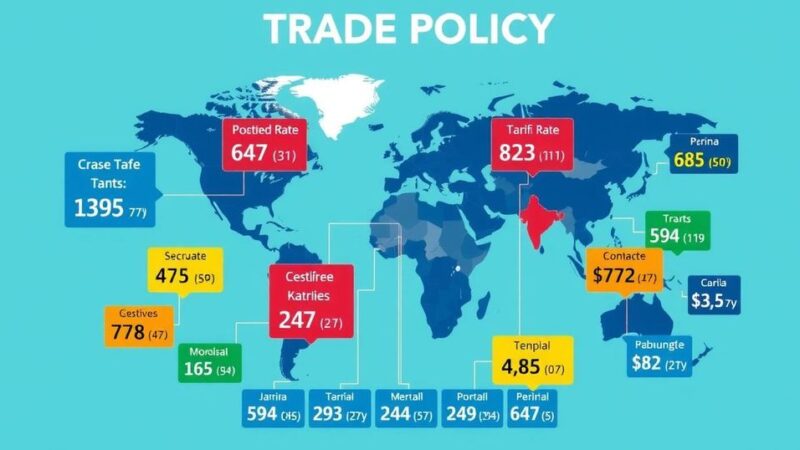The average yield on Nigeria’s US dollar bonds rose to 19.54% amidst a slowdown in inflation, driven by favorable macroeconomic indicators. Bearish sentiment affected the Eurobond market, leading to significant sell-offs. US investors are bracing for economic challenges while awaiting the Federal Reserve’s upcoming decisions on interest rates.
The average yield on Nigeria’s US dollar bonds increased by 12 basis points to 19.54% in the international market, attributed to a slowdown in headline inflation. Improvements in key macroeconomic indicators and a stabilizing naira, supported by the monetary authority, have contributed to this upward trend in yields. Despite elevated yields, demand for local bonds continues to rise, with market dynamics expected to shift ahead of the upcoming March auction.
On Monday, bearish sentiment overshadowed the Eurobond market, where risk-off sentiment was prominently observed. Nigerian Eurobond tenors experienced significant sell-offs as foreign portfolio investors responded to a decline in headline inflation to 23.18%. This continuous selling pressure led to declining prices amid broader market uncertainties, with investors remaining cautious while awaiting clearer global risk appetite signals.
The weaker-than-anticipated sales data raised concerns about the overall economic momentum, amplifying speculation regarding the Federal Reserve’s future interest rate movements. Such concerns have led investors to favor safe-haven assets. By the day’s end, the average mid-yield for Nigerian bonds saw an increase, as traders reduced their holdings across various maturities, including short-, mid-, and long-term Eurobonds.
The market observed a substantial sell-off in Nov-27 and Mar-29 maturities, causing their respective Eurobond yields to rise by 15 and 13 basis points. Analysts anticipate that this negative market sentiment will continue unless favorable developments emerge at either the international or local levels.
Simultaneously, US bond investors are preparing for a potential economic downturn by reducing risky assets in their portfolios while extending durations in fixed-income investments, reflecting a cautious stance towards a Federal Reserve unlikely to expedite rate cuts. At an upcoming press briefing, Federal Reserve Chair Jerome Powell may indicate the committee’s patience regarding interest rate reductions, as the economy is not currently showing signs of a severe recession. Furthermore, investors are keenly observing the Fed’s quarterly economic projections, which include interest rate forecasts and the “dot plot,” suggesting two anticipated rate cuts this year, leaving the fed funds rate at 3.9%.
The recent rise in the yield on Nigeria’s Eurobonds to 19.54% reflects a combination of market dynamics and investor sentiment amidst a slowdown in inflation. Despite pressures from foreign portfolio investors and global uncertainties, demand for local bonds remains robust. The outlook remains cautious as analysts suggest sustained negative sentiment unless improvements occur. Similar trends are observed in the US bond market, where investors are bracing for potential economic downturns. Forthcoming communications from the Federal Reserve are likely to provide further direction for market participants.
Original Source: dmarketforces.com






